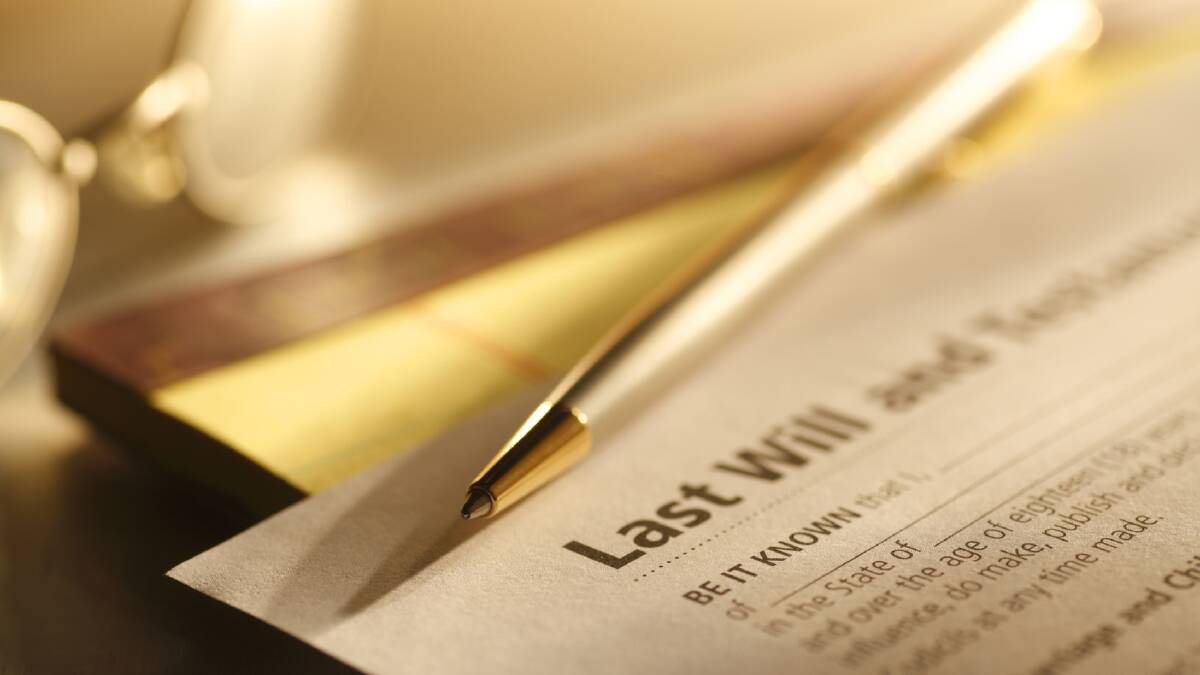Advertising feature
Subscribe now for unlimited access.
$0/
(min cost $0)
or signup to continue reading

Read more:
Death is a fact of life and having your affairs in order can save unnecessary pain and suffering in what is always a sensitive time.
A will is a legal document that enables you to exercise your right to select the relatives, friends and others who will inherit your assets when you die.
If you die without a will your assets will be divided among qualifying relatives and dependants according to a formula set out in government legislation, not necessarily according to your wishes.
If you have no relatives, or they cannot be traced, your estate will be paid to the state government.
You can make your own will, or you can choose to get someone to help you, such as a solicitior, public trustee or private trustee.
If you choose to make your own will you must ensure that it is a clear and valid will.
This advertising feature is sponsored by the following business. Click the link to learn more:
You need to consider the following:
- ikely value of your estate;
- beneficiaries;
- special gifts;
- disposal of the residue; and
- appointing an executor.
Challenges to your will can be expensive and time consuming, and can cause distress to your family and friends.
If you choose to get someone else to draw your will up for you the will must be signed by yourself and two independent witnesses who are not beneficiaries.
Your executor should be made aware of his or her appointment as they will be tasked with the job of executing the will.

